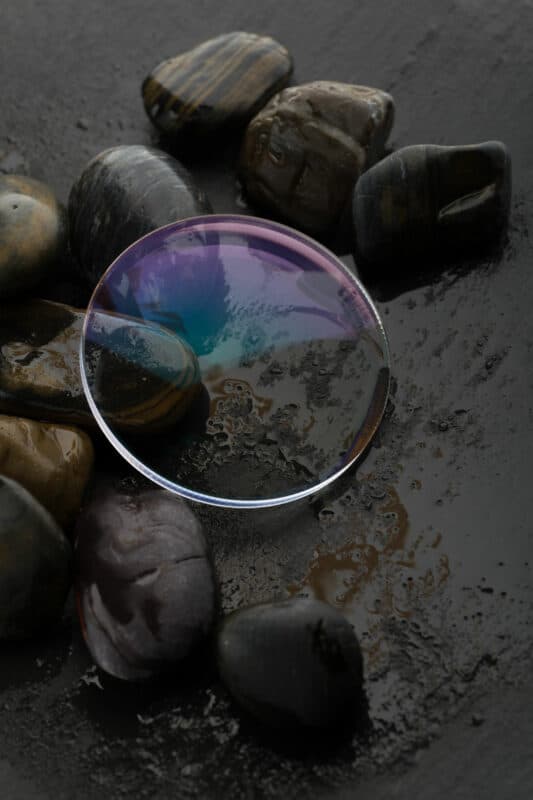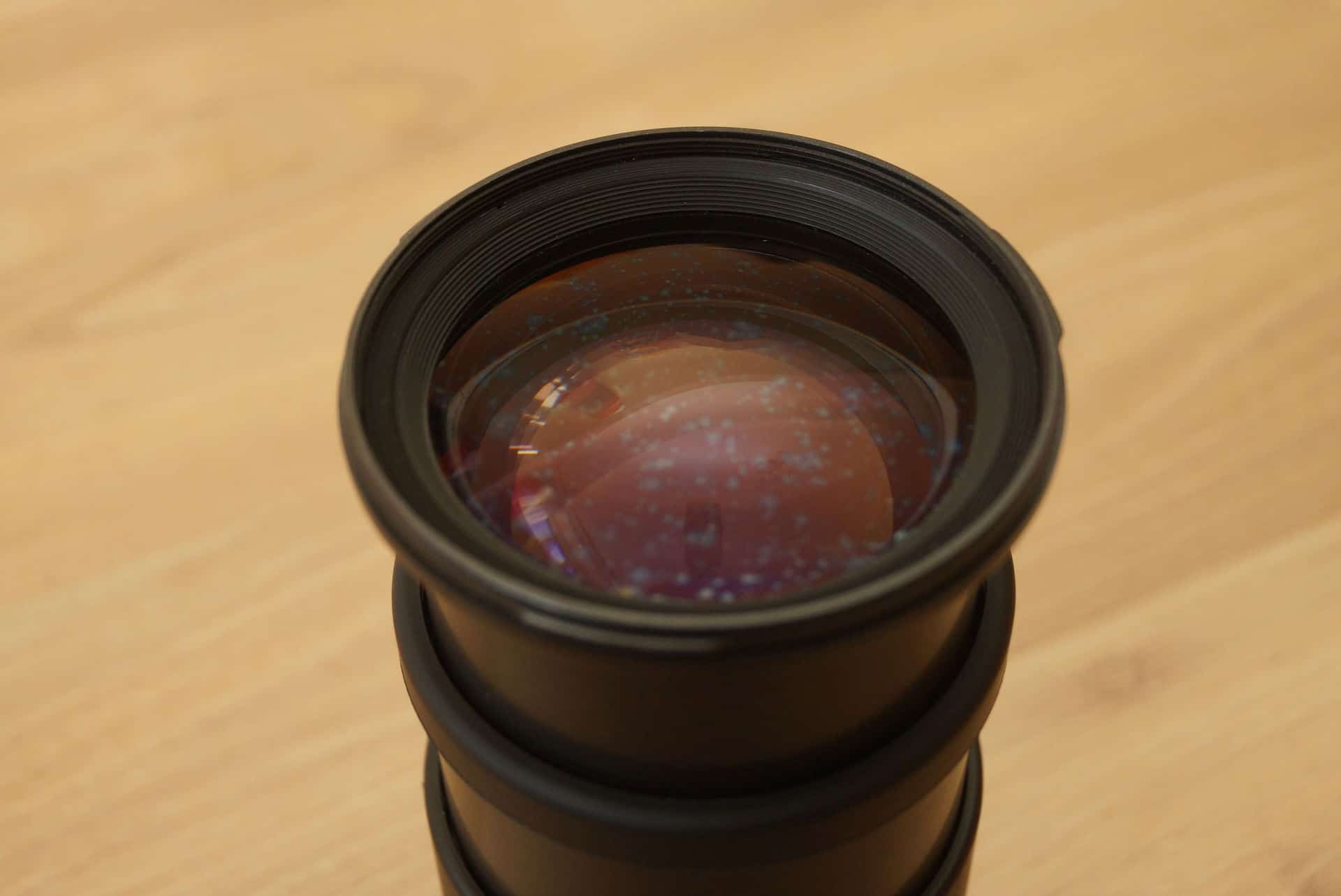It is important to have a lens protector for your camera lens to stay in well-kept condition for any period of time. A damaged lens, no matter how little, can disable your camera’s entire effective purpose, which is to take good pictures. Everyday mishaps can scratch, crack or dent your lens, which will end up costing you a great deal of time and money to fix. These can be relatively easy to spot. But what about the lens coating? How can you tell the lens coating is damaged?
You would most likely be able to notice lens coating damage in your photos. The photos may appear dull, blurry, and off-color. You can also visually inspect the outside of the lens to determine if there are inconsistencies or imperfections across the outside lens glass.
Different everyday things like fingerprints, smudges, dust, and small scratches and the rear or front element of your lens will easily damage the coating of the lens, which will ruin your chances of taking beautiful, clear pictures. Read on for more info.
Table of Contents
How to Tell if a Lens Coating Is Damaged
When taking a photo with a camera, it is important to know how to use the device properly to end up with clear and focused pictures. Without using a proper lens, photos are more likely to turn out dull and blurry. When a lens has become damaged, you will tell by the result of the pictures you take.
Using a magnifying glass to look closely at your camera lens coating is another effective way to examine your lens’s quality. You will likely notice smudges or scratches if there are any, and this will help you decide what steps you need to take next to either fix or replace your camera lens.
Camera lens’ are made up of groups of glass plates that are curved in outward directions. These glass plates allow for light to come into the camera from certain rules without overpowering the entire camera with too much light from unwanted places. When a lens has been damaged, you will be able to distinctly notice impairments on the copies of photographs that you take with said camera.
Source: Masterclass
Now, this doesn’t mean you will be able to spot lens coating damage every time. It is unlikely that minor issues with the lens coating will cause significant quality issues. If you still want to replace the front element of the lens, that’s fine. But what about recoating the lens?
Should You Recoat Your Lens?
It would not be worth the time or money to get your lens recoated. I understand the temptation. But if you proceed, here are a few issues to consider:
- The lens coating would have to be removed before it could be reapplied in most, if not all cases.
- Removing and reapplying lens coating would likely end up deforming the lens itself.
- The lens coating could possibly leave a slight tint over the entire lens.
- It would be expensive. You might as well add another midrange lens to your collection.
The manufacturer would likely not even consider recoating your lens so you would have to find a 3rd party lab to do the work. In short, it would probably be more economical to replace the front element of the lens than to have the original lens coating removed and then reapplied.
Why Is a Camera Lens So Important
Camera lens focus and filter light so that light hits the camera’s sensor strip at the correct angle and with the appropriate amount of light. There are numerous aspects of a camera lens that factor into the lens’s ability to help the final photo turn out well. The lens coating helps to properly filter light so that your photographs do not turn out too washed out.

A damaged lens can be detrimental to the quality of your photos. Without a fully functioning lens, you may begin to see things that are off-balance, like the lighting or focus.
Protection
It is crucial to take care of your camera lens because the smallest amount of dust, dirt, or smudge can permanently damage the coating, ruining the entire camera lens.
Going to special lengths to protect your camera lens’ coating will pay off in the long run, and you will be very grateful for taking these extra measures.
Using protective gear and being cautious about who you let handle your camera are important aspects of protecting the lens coating.
Coating
Lens coating is an element that is painted across the camera lens’ to reduce the substantial amount of light that will be allowed to seep in when a picture is taken. Lens coatings also aid in the transmission of light as it transcends through the lens and focuses on the person or subject being photographed.
This coating is vital to the production and result of every picture taken, which is why it is so important to take care of your camera lens so that the coating does not get damaged!
Handling with Care
You may be used to sliding your phone in your pocket, slapping your backpack over your shoulder, or slamming the door of your car as you get out. However, a camera is a delicate and fragile piece of beautiful equipment that needs to be handled with great care.
Intricately designed, these devices were made to produce lovely photographs that everyone will be able to enjoy. For them to function properly, you must do your duty by gently caring for them while they are at home and while you are out and about taking photographs.
Lens’ has a huge factor in deciding how the result of pictures will be. If you care for your camera lens properly, it will not let you down!
Different Ways to Protect Your Camera Lens
You must take simple yet necessary steps to protect not only your camera lens but your entire camera while you are out and about. The smallest accident can ruin your camera lens for good, and this will cost you a great deal of money that you were probably not planning on spending.
Planning is one of the most important elements for having a successful outing with your camera. Research the right tools and gear ahead of time that will help you to protect your camera lens while you are embarking on a photography adventure!
Different methods to protect your camera lens:
- Portable protector – A lightweight, portable projector that has an attachment to hang on your person while it is not in use is a wonderful way to keep your camera lens safe on the go.
- Camera bag – A lightweight camera bag is a wonderful method to safely store your camera and protect your lens adequately while you are not using the camera.
- Fisheye protector – A fish eye protector is a lens protector that looks sort of like a half bubble. This will protect or lens if you ever accidentally drop your camera or accidentally place it face down on a table.
- Waterproof lens cap – A waterproof lens cap will ensure that your lens will stay dry and safe throughout all sorts of treacherous weather conditions such as rain, snow, and hail.
- Camera strap – A great way to ensure that your lens will stay safe is to keep your camera attached to your body at all times. You can do this by using a camera strap.
- Face Up – When you set your camera down, always keep the camera face up so that the lens is not touching the table or whatever surface you have set your camera down on.
Educate yourself regarding the type of equipment you will need to properly protect and care for your camera so that you can use it and enjoy it for many years to come.
Source: Imaging Resource
Protecting Your Photography Equipment
Investing in proper camera gear for any photography takes time, energy, money, and interest. Needless to say, once you have the equipment of your choosing, you will want to go to great measures to protect it and keep it in pristine condition for many years to come.
The best way to protect your camera lens coating is to buy protective gear for it and be gentle and aware of how you use your camera, where you set it down, who you let use your camera, and how you store it over long periods.
Source: Digital Photography School
In Conclusion
Entering a well-lit area and taking a close look at your lens will give you an idea of what shape your lens coating is in. You can also try taking a few pictures and look back at those pictures to see if you can notice any scratches, odd light waves, or blurry spots in the photograph. This will be a clear indication that your camera lens coating has been damaged.
If there is damage to the lens coating or if some of the lens coating has been removed or worn, you can look into replacing the front element of the lens. Alternatively, you can go for the gusto and replace your lens entirely. Whether you want to fix or replace would depend on the value of the lens in question. Weight the costs in your decision.
Caring for your photography equipment is the enormous responsibility of every photographer and camera owner. These are beautiful machines that will produce amazing photos if they are properly cared for. Just like a well-oiled car, cameras need tender love and care also!

